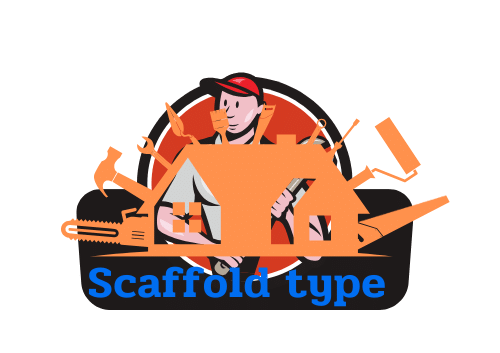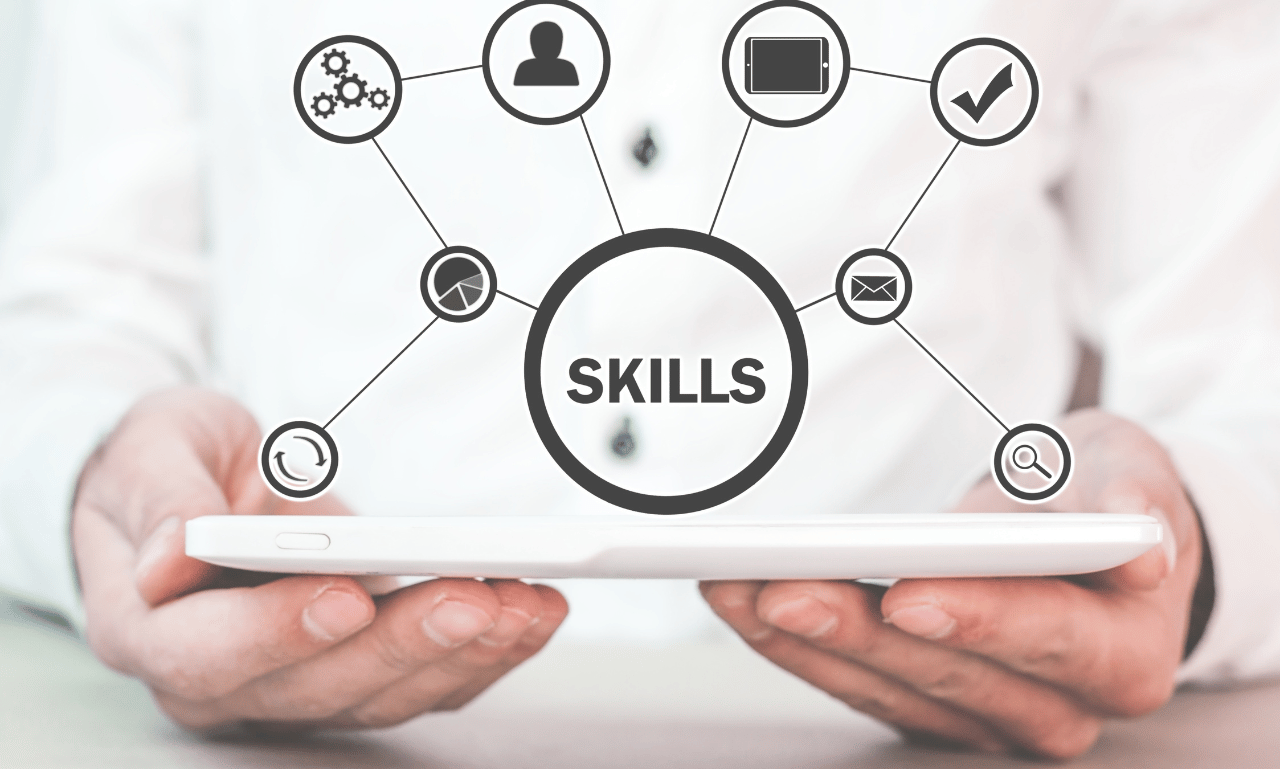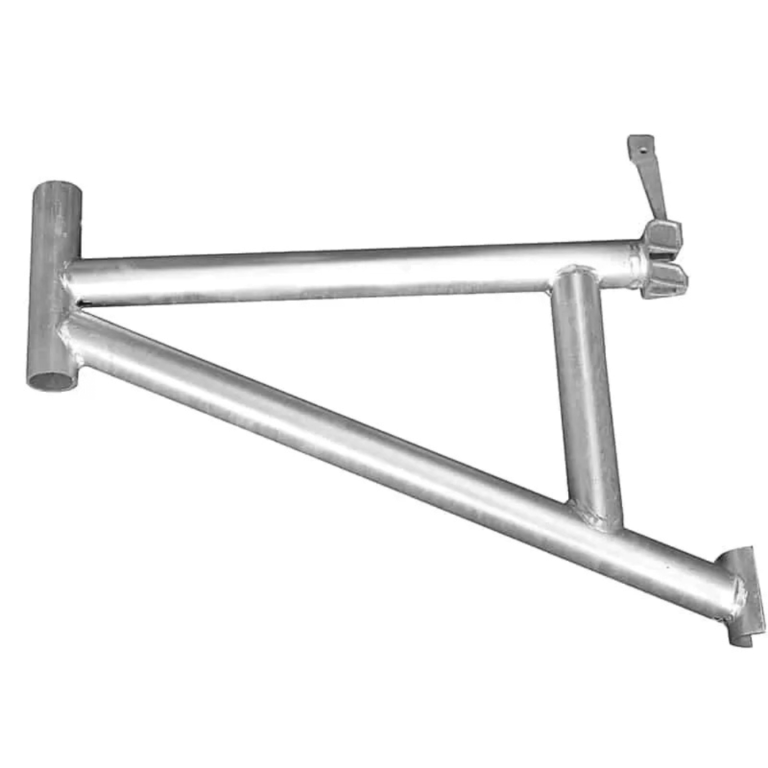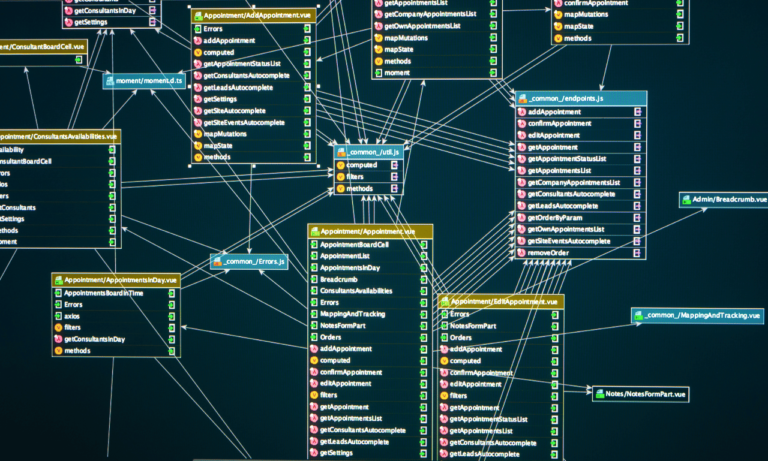Phone:
(+65)8319-0742
The ever-evolving landscape of modern businesses calls for an innovative approach to professional developmentâone that transcends conventional job descriptions. The Skills Mastery Framework represents such a change, offering a skill acquisition framework designed to fortify talent development approaches and career skills enhancement strategies. This dynamic methodology not only identifies but also cultivates the vital skills required for one to excel and progress in their career journey.
Tapping into the Skills Mastery Framework equips individuals and companies with the means to foster a workforce that is both competent and adaptable. This talent development approach is key to unlocking one’s full potential and securing a competitive edge in today’s fast-paced market. It’s about refining those competencies that align with both industry demands and personal aspirations, empowering professionals to thrive amidst continuous change.
Key Takeaways
- Adopting the Skills Mastery Framework aligns talent development with essential competencies
- Emphasis on skill acquisition framework ensures career skills enhancement relevant to industry needs
- The talent development approach encourages continued learning and adaptability
- Skills Mastery Framework aids in securing a competitive edge in the business environment
- Framework’s focus on personal competencies allows for a tailored career advancement strategy
Embracing the Skills Mastery Framework for Professional Growth
In today’s competitive working environment, the quest for continuous professional development is pivotal. Integrating strategies such as the proficiency enhancement model and competency development program within a Skills Mastery Framework can lead to transformative career progress. This holistic approach transcends traditional job specifications by focusing on an individual’s unique strengths to create a versatile and adaptive workforce.
Defining Competency-Based Frameworks
A competency development program represents a cornerstone of the Skills Mastery Framework. It circumscribes the essential skills and capabilities necessary for achieving success in a specific role or industry. These frameworks account for the professional development needs of the workforce by offering a systematic skill development strategy, allowing for personalized growth trajectories and the nurturing of key professional competencies.
Skills-Based vs. Inherent Competencies
Moreover, within such frameworks, there is an important distinction between skills-based and inherent competencies. Skills-based competencies are quantifiable and can be learned through education and practice, reflecting a commitment to professional development. Conversely, an inherent competency is a natural attribute that while not easily taught, remains instrumental to personal and professional success. Through the Skills Mastery Framework, professionals can assess and hone their skills-based competencies whilst recognizing the value of their inherent strengths.
Recognizing the balance and interplay between these two forms of competencies is at the heart of a successful proficiency enhancement model. Both types are integral to the greater competency development program where professionals can chart a course for improvement and acquisition of new skills. It is through a fine-tuned skill development strategy that career growth is not just a possibility, but an ongoing achievement.
The Importance of Competency Development in Careers
In an ever-evolving professional landscape, career growth is deeply intertwined with competency development. Aligning with the expertise mastery framework, advancing oneâs career is about much more than climbing the corporate ladder; it’s about cultivating a comprehensive set of skills-based competencies that are essential in today’s job market. This mastery-based approach to learning and skill development not only ensures that professionals remain competitive but also that they are prepared for the dynamic challenges of their respective industries.
Learning and Enhancing Skills-Based Competencies
Professional growth is fueled by continuous learning and the enhancement of skills-based competencies. Whether one is looking to step into a leadership role or excel in a specialized field, the mastery-based learning concept advocates for strategic skill development strategies. It paves the way for individuals to take ownership of their professional journey through a focused and purposeful method to acquiring and refining the skills necessary for their success.
The Challenge of Developing Inherent Competencies
While learning technical or job-specific skills is often a structured process, developing inherent competencies poses a different kind of challenge. Characteristics such as integrity, empathy, and creativity are much more nuanced and are often influenced by personal experiences and innate disposition. The task at hand is not one of acquisition but one of enhancement and integration. Acknowledging the value of these innate competencies within the expertise mastery framework is crucial, as they are the underpinning elements that allow for a holistic approach to talent development and career advancement.
It is through this balanced synthesis of enhancing learned competencies and recognizing the power of inherent talents that professionals can truly unlock their potential and thrive within their careers. An effective skill development strategy requires this acknowledgment as a foundational step towards achieving mastery in one’s vocation.
Overcoming Negative Competencies and Their Impact on Success

The journey of professional development often involves not just the acquisition of new skills but also the critical task of overcoming negative competencies. Within any competency development program, it is imperative to address traits that can undermine an individual’s performance and the organization’s overall success. These negative competencies range from poor communication and lack of accountability to resistance to change, all of which can stagnate personal growth and organizational progress.
To sustain a proficiency enhancement model, it is essential to identify these harmful competencies and develop strategies to transform them into positive attributes. The process of addressing and managing these adverse competencies is a vital component of fostering a standard of professionalism and excellence within the workplace.
In order to ameliorate the effects of negative competencies, consider the following table which outlines common detrimental traits and proposes strategies for improvement:
| Negative Competency | Impact on Professional Environment | Strategies for Improvement |
|---|---|---|
| Poor Communication | Leads to misunderstandings, decreased team cohesion, and errors. | Engage in active listening exercises, provide constructive feedback, and practice clear messaging. |
| Lack of Accountability | Results in missed deadlines, eroded trust, and a culture of blame. | Set clear expectations, encourage ownership of tasks, and implement transparent progress tracking. |
| Resistance to Change | Stifles innovation, hinders adaptation, and impedes growth. | Foster a growth mindset, provide change management training, and celebrate adaptive successes. |
By embedding these strategies into regular practice, individuals and leaders alike drive the continuous improvement necessary for professional development and cultivate a work environment conducive to success. Organizations that prioritize competency development programs are better positioned to navigate the complexities of the modern business landscape and achieve a higher level of performance across all metrics.
Strategies for a Proficiency Enhancement Model
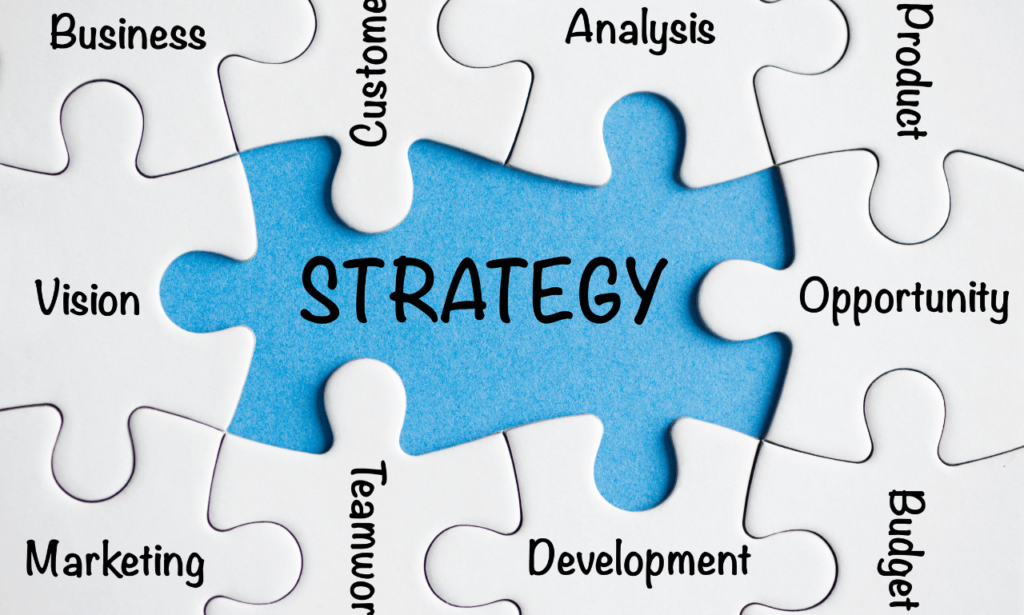
Embarking on a journey towards professional excellence requires a comprehensive approach, one that includes devising strategies underpinned by a skill acquisition framework, investing in a competency development program, and seeking to actively apply an expertise mastery framework. To facilitate this transition, let’s delve into actionable strategies.
It begins with establishing a goal-setting methodology that is both realistic and rigorous. Referring to the well-established SMART criteria helps in formulating objectives that are Specific, Measurable, Achievable, Relevant, and Time-Bound. This precision aligns effort with outcome, providing a clear pathway to professional growth.
Moreover, the ever-changing landscape of industry needs requires showcasing a versatile skill set in professional applications. Customizing profiles and applications to reflect industry-relevant expertise is crucial for staying competitive in the job market.
Continuous learning remains at the heart of career development. Advancing in professional capabilities demands commitment to perpetual education, achieved through the myriad online platforms offering courses and resources across diverse domains.
Networking also plays an indispensable role in career progression. Engaging in industry events fosters relationships and opens avenues for collaborations and opportunities. Similarly, leveraging professional platforms can significantly expand one’s reach and influence in the professional community.
- Define SMART Goals
- Customize Professional Applications
- Commit to Continuous Learning
- Build a Robust Professional Network
The table below elucidates the correlation between various strategic facets of proficiency enhancement and their corresponding impact on career development:
| Strategy Element | Proficiency Enhancement Approach | Expected Outcome |
|---|---|---|
| Goal-Setting | Implement SMART framework for goal formulation | Clear career progression milestones |
| Profiling | Highlight relevant skills and experiences tailored to industry needs | Enhanced professional visibility and marketability |
| Educational Commitment | Enroll in online courses and workshops for ongoing education | Increased expertise and adaptability to new trends |
| Networking | Participate in industry events and utilize professional platforms | Valuable connections and collaborative ventures |
Acknowledging the harmonious synergy between systematic goal setting, targeted professional profiling, dedicated learning, and strategic networking anchors the proficiency enhancement model within the larger structure of a skills mastery framework. Central to actualizing these strategies is the willingness to adapt and embrace growth-oriented opportunities.
Utilizing the Skills Mastery Framework in Your Career

Developing a skill development strategy is more than just a commitment to lifelong learning; it’s about actively shaping the trajectory of your career. A robust talent development approach involves understanding your current skill set, recognizing the gaps, and methodically working towards filling those gaps. The Skills Mastery Framework empowers professionals to articulate a clear path for career skills enhancement and personal growth.
Personalized Goal Setting
The journey towards career advancement begins with setting personalized goals. By breaking down complex, long-term career aspirations into achievable short-term objectives, you can use the Skills Mastery Framework to craft a meticulous plan that resonates with your ambitions and capabilities. Whether you’re aiming to master specific technical skills, improve leadership qualities, or transition into a different industry, setting clear objectives is fundamental to success.
Building Professional Networks
Networking is not just about collecting contacts; it’s about building a tapestry of professionals that share interests, expertise, and opportunities. Employ the Skills Mastery Framework to selectively gain traction in your industry by attending significant events, engaging with thought leaders on professional platforms such as LinkedIn, and contributing to conversations that showcase your developing skill set. Such a talent development approach can lead you to unanticipated collaborations, mentorships, and unexpected career avenues.
Below is an illustrative example of how one might use the Skills Mastery Framework to enhance areas of expertise systematically:
| Year | Skills Enhancement Focus | Networking Goals | Expected Outcomes |
|---|---|---|---|
| 2023 | Advanced Data Analysis Techniques | Join industry-specific LinkedIn groups | Increased project efficiency |
| 2024 | Leadership and Team Management | Attend leadership conferences | Better team performance metrics |
| 2025 | Cross-functional Communication Skills | Participate in cross-industry mixers | Improved collaboration with other departments |
This table serves as a blueprint for professionals who are committed to a structured approach for enhancing career skills and expanding their networks, integral components of a comprehensive skill development strategy.
Transformative Learning and the Skills Acquisition Framework
The intersection of transformative learning and the mastery-based learning concept is a powerful nexus for professional development, offering a rich soil where career skills can not only take root but flourish. Within this growth-centric mindset, a skill development strategy transcends traditional education methods by employing adaptive instruction tailored to individual learning styles. This personalized approach ensures that each professional’s developmental journey is as unique as their aspirations and capabilities, fostering a genuine enhancement of expertise.
Leading the charge in the latest trends of career skills enhancement is the sophisticated use of technology. From interactive e-learning platforms to nuanced diagnostic tools, these advancements render the acquisition of new competencies more accessible and engaging. This adoption of innovative learning technology is an essential tool for those intent on deepening their professional development. By enabling an environment that supports diverse learning needs, learners can overcome challenges that once acted as barriers to their professional progress.
In the realm of inclusive education, the Skills Acquisition Framework has proven itself indispensable. Educators are increasingly crafting personalized toolkits and integrating resources like audiobooks, making learning more inclusive for students with dyslexia. These techniques highlight the framework’s flexibility and its transformative impact across different learning environments. This strategic evolution in learning methodologies exemplifies a profound shift towards a culture of continuous improvement and mastery that defines the contemporary landscape of professional development and career advancement.
FAQ
What is the Skills Mastery Framework?
The Skills Mastery Framework is a structured approach for identifying and developing the essential skills and abilities necessary for career advancement, by focusing on role-specific competencies rather than traditional job titles.
How do competency-based frameworks differ from traditional job descriptions?
Competency-based frameworks provide a dynamic profile that outlines specific skills and abilities required for success in a given role or industry, considering an employee’s unique strengths and weaknesses rather than general job specifications.
What are skills-based competencies?
Skills-based competencies are the specific skills vital for executing tasks and functions associated with a particular role. These competencies are developed through focused education, training, and practical experience.
What are inherent competencies?
Inherent competencies are natural traits such as integrity, empathy, and creativity, which impact an individual’s success across various aspects of life and are more challenging to cultivate as they are deeply rooted within one’s personality.
Why is identifying negative competencies important?
Identifying negative competencies, such as poor communication or resistance to change, is critical in maintaining a healthy work environment and ensuring individual and organizational success by addressing and managing these traits.
What is the proficiency enhancement model?
The proficiency enhancement model is a part of the Skills Mastery Framework that offers strategic methodologies for systematically upgrading professional capabilities and emphasizes continuous growth and adaptability.
How does personalized goal setting benefit professional development?
Personalized goal setting within the Skills Mastery Framework facilitates tailored career advancement by breaking down long-term aspirations into manageable short-term objectives, thus providing a clear path for progression.
Why is building professional networks essential?
Building professional networks is instrumental for career development as it helps share insights, engage in meaningful conversations, and forge connections which may lead to collaborative opportunities and career growth.
How can learning environments be made more inclusive?
Inclusive learning environments can be created by employing strategies such as personalized toolkits, differentiated instruction, and the utilization of adaptive learning technologies to cater to various learning styles and needs.
